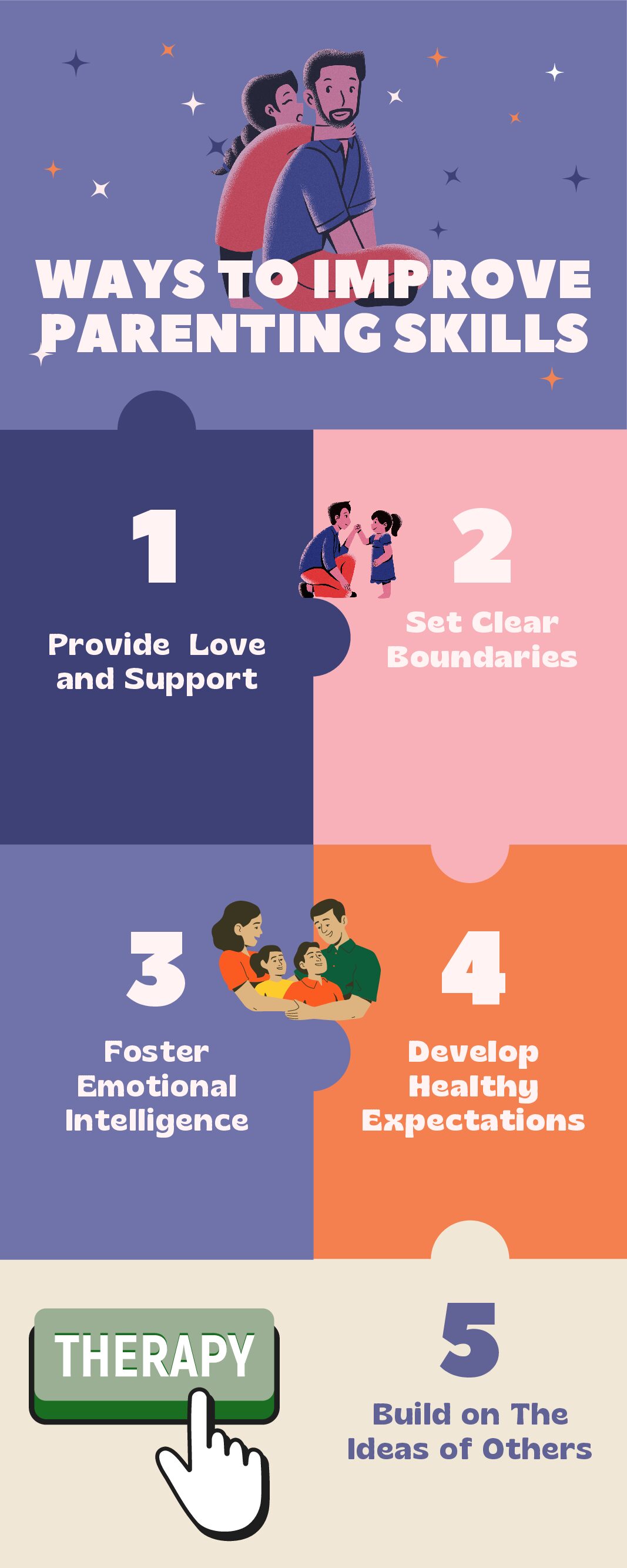Counseling Can Help You Be A Healthy Conscious Parent
Our counseling office helps parents show up effectively and consciously for those that they love. Working with a counselor can provide you with support in helping your parents in a healthy way.
Key areas that parents can focus on when working with a counselor:
- Learning how to prioritize your mental health so that you can show up for your child.
- Gain direction on setting clear boundaries. Develop healthy expectations focused on success.
- Support your child in learning healthy values and behaviors.
- Teach your child to grow without controlling them.
- Learn how to help your child be independent.

10 Ways To Improve Parenting Skills
Your kids, tweens, and teens need to be ready for school. You may be a first-time preschool parent or a veteran watching your child enter their last semester in high school prior to launching into college.
Awesome parents make great kids.
It is truly vital that you as a parent find as much information and resources as you can to improve and better your parenting skills. Your kids will grow faster, more mature, brighter, more respectful, and more in tune with you.
This article is aimed to provide you with 10 ways that you can improve the parenting skills that your child is “asking for”.
1. Become involved in your child’s life. You can do this by:
- Joining their school PTA
- Signing up to be a coach for their team
- Having a date night with them
- Asking them about their day each and every day
- Emailing their teachers and community supporters
- Becoming friends with them on Facebook and other social media
- Engaging in activities with your child focused on emotional intelligence.
- Showing your child how to find good role models.
- Helping your child develop confidence.
2. Observe your child’s behavior by always remaining involved. When you notice a positive or negative change, be the first to ask (why?)… One way to increase your ability to identify how your child is doing is by giving your child space to learn how to express their thoughts and feelings in a healthy manner. A tool that can be of support is the Positive Mindfulness Journal For Kids: Helping Kids With Anxiety, Depression and Gratitude.

3. Be your child’s role model. No one should know your child better than you. Remember that there are always others ready to provide your child with guidance and act as a role model some are positive and others are negative but none will look out for them as you would.
4. Get out of the house and get involved with your child. You can not simply be the home parent who parents from home. You need to parent in the home and out of the home.

5. Do not engage in parent battles in front of your child. Practice using code words such as “let’s get coffee” when you and your spouse need to debate over a matter. Remember your son or daughter is observant and fully aware of what goes on, so when you need to battle something out make sure that it is not visible or heard.
When parents battle or engage in unhealthy conversation in front of their kids, exposure is taking place. Kids are now given the opportunity to see how a parent interacts. They are able to mimic behaviors and learn. Again, this is why it is vital to ensure that as a parent you are actively engaging in effective leadership. Showing your kids positive behaviors that you would like for them to mirror.
6. Provide your children with the utmost attention at every age. It honestly does not matter 5, 12 or 50 years of age. Always provide them with attention. Take time to reflect on the following:
- What is my child interested in?
- Last my time child wanted to spend time together what did they want to do?
- When I spend one-on-one time with my child what behaviors do I notice?
7. Present yourself as equal parents. Do not step on your spouse to feel empowered it will only lead to a negative reaction from your child and most likely your spouse. If you feel stuck here, take time to connect with your partner. Consider creating a purpose or values that align you with your partner. This will directly improve parenting skills and help you and your partner show up as a team. A united team.
8. Create family games nights, movie nights, or board games! Have some sort of tradition that distinctly defines your family. Below are examples of positive family activities that you can implement:
- Go for a scavenger hunt.
- Write a short story together.
- Play monopoly.
- Paint together.
9. Identify realistic consequences and rewards that include your child in the decision-making process. During this process, you can start by first coming together as parents. Consider what the goal is. For instance, if you implemented “blank” parenting strategy what outcome are you searching for. After you decide on the outcome or goal, find space to create potential consequences. During the consequence phase, you can invite your child in. At this point, your child can give you their ideas for potential consequences. This simple strategy works to develop independence, maturity, and accountability in your child.




